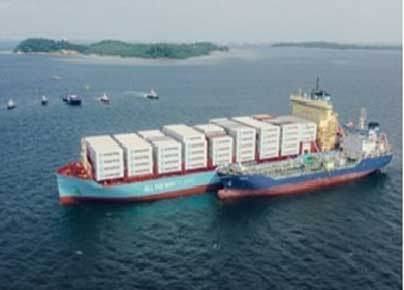Maersk Achieves Shipping Industry’s First Climate Target Validation
2024-02-09

AP Moller-Maersk, the Danish shipping and logistics conglomerate, has set a new industry precedent by validating its decarbonisation targets. These targets align with the Paris Agreement’s objective to limit the global average temperature increase to 1.5C above pre-industrial levels.
The company’s goals have been verified by the Science Based Targets Initiative (SBTi), a globally recognized authority for assessing corporate climate targets. The initiative, established by several climate organizations including the Worldwide Fund for Nature and the United Nations Global Compact, has approved Maersk’s 2030 targets and its ambition to achieve net-zero greenhouse gas emissions by 2040.
As the world’s second-largest liner, Maersk is striving for a nearly 35% reduction in scope one emissions and approximately 22% in scope three emissions by 2030. By 2040, the company aims to reduce absolute scope 1 and 2 emissions by 96% and absolute scope three emissions by 90%.
Since 2019, Maersk has been committed to setting climate targets in accordance with scientific guidelines and recommendations from SBTi. In 2022, following the publication of SBTi’s shipping guidelines, Maersk submitted its short- and long-term targets to achieve absolute reductions.
Today, nearly 60% of Maersk’s top 200 customers have committed to or set science-based targets, extending to their supply chains. For its operations, Maersk emphasizes the importance of green fuels and ongoing improvements in fuel efficiency. Solutions across the supply chain necessitate active engagement and close collaboration with suppliers.
The Copenhagen-based shipping company was the first to commit to methanol-fuelled new builds in 2021, pioneering methanol dual-fuel retrofits and paving the way for others in the industry.
Rabab Raafat Boulos, Chief of Operations at Maersk, stated, “We are committed to doing our part to achieve these targets, but we cannot do it alone. Success requires collaboration with the ecosystem we are part of, including customers, suppliers, industry peers, and regulators. Crucially, there is a need for global regulations from the International Maritime Organization (IMO) to bridge the price gap between fossil and green fuels, ensuring a level playing field.”









